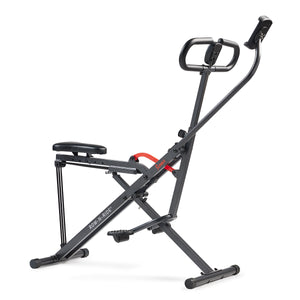Listen, we have all been there. You wake up ready for your day and you look and feel your best – even your favorite jeans are fitting just right. But it’s an entirely different story in the evening when you’re ready to go out with friends and want to feel like your most fabulous self, but you no longer have the flat morning tummy everyone yearns for. Instead, you are uncomfortable and bloated – and this is before dinner!
Bloating can happen for a variety of different reasons. Many of these reasons are normal, while some should be addressed by your physician. In this blog, I’ll share with you a few of my favorite ways to help with deflating your bloat, as well as how to get some relief if the bloating you are experiencing has been happening on a consistent basis.
1. Probiotic
It’s 2024, we should all be taking a high-quality probiotic by this point. Gut issues or not, it can help prevent any inner gut problems from occurring and alleviate ongoing issues. Either way, I see a probiotic as a win-win.
According to the National Institutes of Health, “probiotics can be used to prevent or treat seven health conditions: atopic dermatitis, pediatric acute infectious diarrhea, antibiotic-associated diarrhea (AAD), inflammatory bowel disease, irritable bowel syndrome, hypercholesterolemia, and obesity.” So, probiotics can help in more ways than one!
Look for a high-quality probiotic, there are a lot of options out there. It is important to make sure you know the integrity of the product and that the ingredients in the supplement are beneficial. Make sure to look carefully at what a probiotic has in it before purchasing.
2. Fiber
Fiber is essential for our daily diet, and many may find a deficiency in fiber can make them bloated; however, the opposite is true as well. Having too much fiber can also cause bloat and discomfort. The truth about fiber is that every person needs a unique amount, but here are some ranges if you’re just starting to track your own daily intake:
- Women should aim to get anywhere between 20-25 grams
- Men should get anywhere between 25-30 grams
This is something you should try to stay consistent with to truly know if it is the right amount for you. Age and your level of daily activity can play into your own needs. Some foods to consider when targeting fiber should be organic fruits, vegetables, whole grains, nuts, legumes, and seeds.
3. Movement
Move your body! Moving your body will not only help bring more oxygen to your brain so you have a clearer headspace and better mood, but it will aid in the process of digestion. One of my biggest tips is to walk after a meal. This will help prevent heartburn, constipation, and keep things moving as they should. Laying down after a meal can make the digestive process harder on your body. This is why you often hear advice about not eating after 8:00 PM. While a certain time is not the issue, it is usually correlated to when you eat dinner and how closely are you going to bed to rest. Our sleep is interrupted to digest your last meal which can cause bloat in the mornings when you wake up. So, plan your meals so that you can get up and move when you’re done eating, whether it’s a walk or just doing house work.
4. Protein
I was certainly not going to list these tips without mentioning my tried and true: protein. Protein is an essential nutrient and has so many benefits. Especially if you are currently in your health and fitness era of life, I am sure you have heard a ton about how protein can help transform your body. This is true – protein is going to help with lean muscle mass so you can achieve that “toned” look.
Many find it difficult to hit enough calories and their protein target when trying to achieve these goals. The main thing to focus on when it comes to protein is where your protein source is coming from. Make sure you’re not grabbing protein bars, cookies, and shakes as your main source. This may lead to increased bloating. A lot of protein supplements have much more than just protein, including oils, refined or artificial sugars, flavors, and other fillers that lead to bloat. I would recommend getting at least 3 meals a day from whole animal-based protein products that come from real food, not packaged or processed.
Another great tip is to pair your high protein meals with veggies, or carbs with more fiber in them to make sure the protein has the other essential nutrients to shuttle through your body. Just as protein is an essential nutrient, so are carbs and fats. Speak with a dietician or nutritionist to ensure you are consuming enough of all 3 of these macronutrients, especially if you have found your higher protein diet is making you feel icky and bloated.
5. Stress
We all carry a certain amount of stress in our lives on a day-to-day basis. Every person is unique in the amount of stress their body can bear. From work to personal lives to our relationships and our health, it can be a lot in this life to tackle all on our own.
I suggest finding ways to make sure you are taking care of yourself. At least 1 hour a day should be dedicated to something that you find increases your happiness. Taking time to read a book, to workout, to call a friend, or just take a bath and breathe. Life can be hard, and we should never compare our stress load to someone else’s, but be kind to ourselves.
Now where is this going with bloat? Well, guess what is connected to our gut health? Our mind. Our mental health. Stress affects our brains, and our brain will tell our gut something is wrong which can lead to chronic gut inflammation and stress on our bodies. This can then very well result in bloat. This is one of those things where it will take more than a few days to ease up, so make sure you are finding ways to help relieve stress that you can be consistent with week to week. Of course, if you are in a situation where stress has a chokehold on your life, reach out for professional help before it worsens. You matter and are so important, it is ok to be selfish when it means creating a safer environment your mind and body.


1. U.S. Department of Health and Human Services. (n.d.). Office of dietary supplements - probiotics. NIH Office of Dietary Supplements. https://ods.od.nih.gov/factsheets/Probiotics-HealthProfessional/. Accessed 14 October, 2024.
2. Professional, C. C. medical. (2024, June 19). What are probiotics & what do they do?. Cleveland Clinic. https://my.clevelandclinic.org/health/treatments/14598-probiotics. Accessed 14 October, 2024.
3. Mayo Foundation for Medical Education and Research. (2023, November 23). How much fiber is found in common foods?. Mayo Clinic. https://www.mayoclinic.org/healthy-lifestyle/nutrition-and-healthy-eating/in-depth/high-fiber-foods/art-20050948. Accessed 14 October, 2024.























Add Your Name & Email
Please enter your name and email to continue.We won’t display your email publicly.